Life
Sign up for our newsletter
We summarize the week's scientific breakthroughs every Thursday.
-
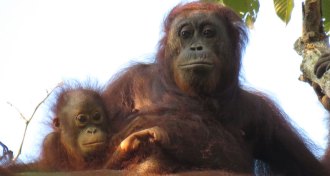 Anthropology
AnthropologyIn Borneo, hunting emerges as a key threat to endangered orangutans
Only small numbers of Bornean orangutans will survive coming decades, researchers say.
By Bruce Bower -
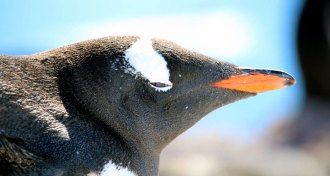 Climate
ClimateLook to penguins to track Antarctic changes
Scientists say carbon and nitrogen isotopes found in penguin tissues can indicate shifts in the Antarctic environment.
-
 Genetics
GeneticsStudy debunks fishy tale of how rabbits were first tamed
A popular tale about rabbit domestication turns out to be fiction.
-
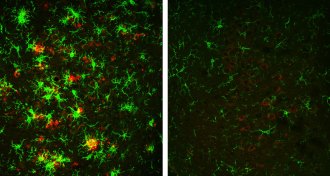 Health & Medicine
Health & MedicineCutting off a brain enzyme reversed Alzheimer’s plaques in mice
Inhibiting an enzyme involved in the production of Alzheimer’s protein globs also made old globs, or plaques, disappear in mouse brains.
-
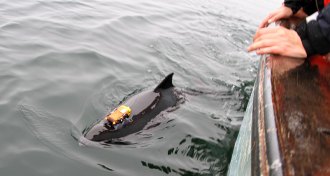 Life
LifeShipping noise can disturb porpoises and disrupt their mealtime
Noise from ships may disturb harbor porpoises enough to keep them from getting the food they need.
By Dan Garisto -
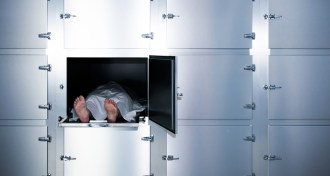 Genetics
GeneticsGenes could record forensic clues to time of death
Scientists have found predictable patterns in the way our genetic machinery winds down after death.
-
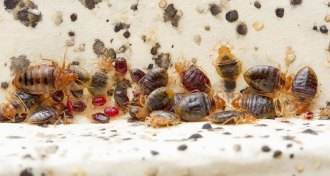 Animals
AnimalsEven after bedbugs are eradicated, their waste lingers
Bedbug waste contains high levels of the allergy-triggering chemical histamine, which stays behind even after the insects are eradicated.
-
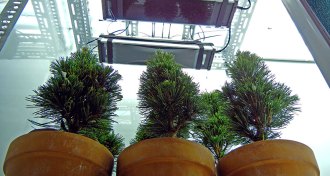 Plants
PlantsAncient ozone holes may have sterilized forests 252 million years ago
Swaths of barren forest may have led to Earth’s greatest mass extinction.
-
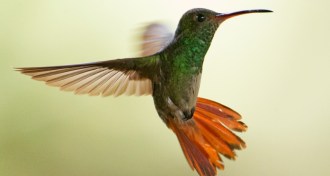 Animals
AnimalsTrove of hummingbird flight data reveals secrets of nimble flying
Tweaks in muscle and wing form give different hummingbird species varying levels of agility.
By Susan Milius -
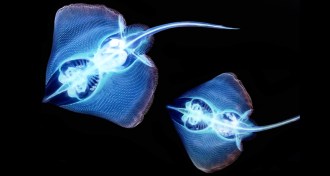 Neuroscience
NeuroscienceThe wiring for walking developed long before fish left the sea
These strange walking fish might teach us about the evolutionary origins of our own ability to walk.
By Dan Garisto -
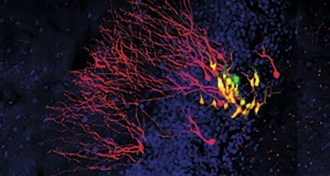 Neuroscience
NeuroscienceWatch nerve cells being born in the brains of living mice
For the first time, scientists have seen nerve cells being born in the brains of adult mice.
-
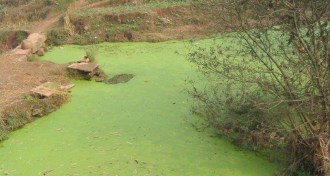 Ecosystems
EcosystemsHumans are overloading the world’s freshwater bodies with phosphorus
Human activities are driving phosphorus levels in the world’s lakes and other freshwater bodies to a critical point.